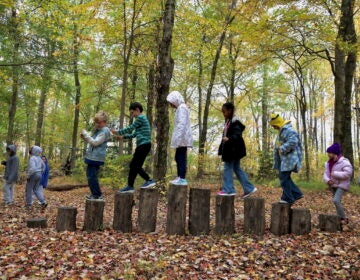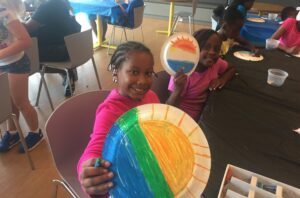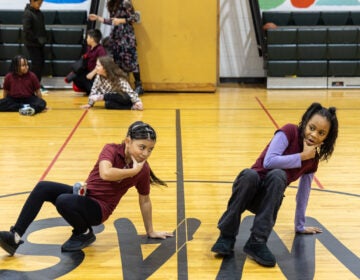Singing, dancing and growing: Music Together Princeton Lab School inspires kids to be creative
Parents at the Music Together Princeton Lab School in Hopewell, New Jersey, say the mixed-age class encourages cooperation and listening.
Listen 1:09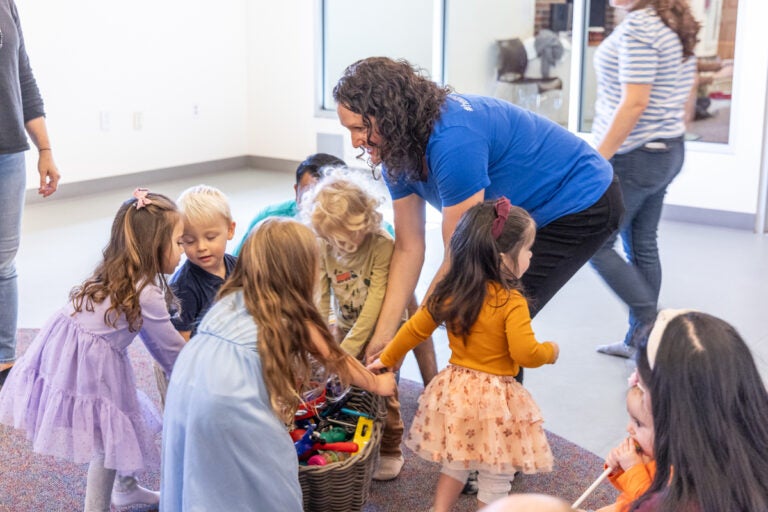
Music Together Princeton Lab School teacher Norah Wasden has the toddlers in her class help her clean up instruments, prompting them with a song. (Kimberly Paynter/WHYY)
From Camden and Cherry Hill to Trenton and the Jersey Shore, what about life in New Jersey do you want WHYY News to cover? Let us know.
Three-year-old Lyla Cherkassky, with her mother Jessie in tow, loves attending her mixed-age music and movement class at the Music Together Princeton Lab School in Hopewell, New Jersey, where she sings, dances, waves her hands, shakes a scarf and beats a drum.
She said it’s her favorite activity of the week.
“Yeah, instruments and lots of stuff,” she said, grinning. “I did every dance I wanted to dance with, haha.”
Music Together teacher Norah Wasden said when her students are dancing, doing hand movements, spinning, tapping and using assorted instruments and props to keep the beat during class, it expands their brain development. “Both musically and otherwise, because music supports all other kinds of learning,” she said. “It’s so important for early math skills, it’s related to pre-literacy skills and phonemic awareness, it’s so good for inhibitory control and focus and attention.”
Music and movement boost creativity
A growing body of evidence finds that exposing young children to music and dance forms connections between their mind and body.
Steph Benischek, chair of the general music council for the National Association for Music Education, said that exposing young children to music “enhances their phonological awareness, it increases their vocabulary, it strengthens their listening skills, which helps later on with reading comprehension.”
Benischek said when music is combined with movement, there are added benefits.
“It helps them to pay attention, it helps with their ability to work with other people, because if you’re moving it’s with other people,” she said. “It’s the awareness of, here is my space in this community, we can all kind of take turns, follow directions and work together.”
Nicolette Hankh, whose daughter Alice is in Lyla’s class, said she has witnessed her daughter’s personality grow since she joined the program.
“I feel like for all the kids it just unlocks a magic within them that all kids have, the confidence that comes out of it and the smiles and it’s so cool,” she said.
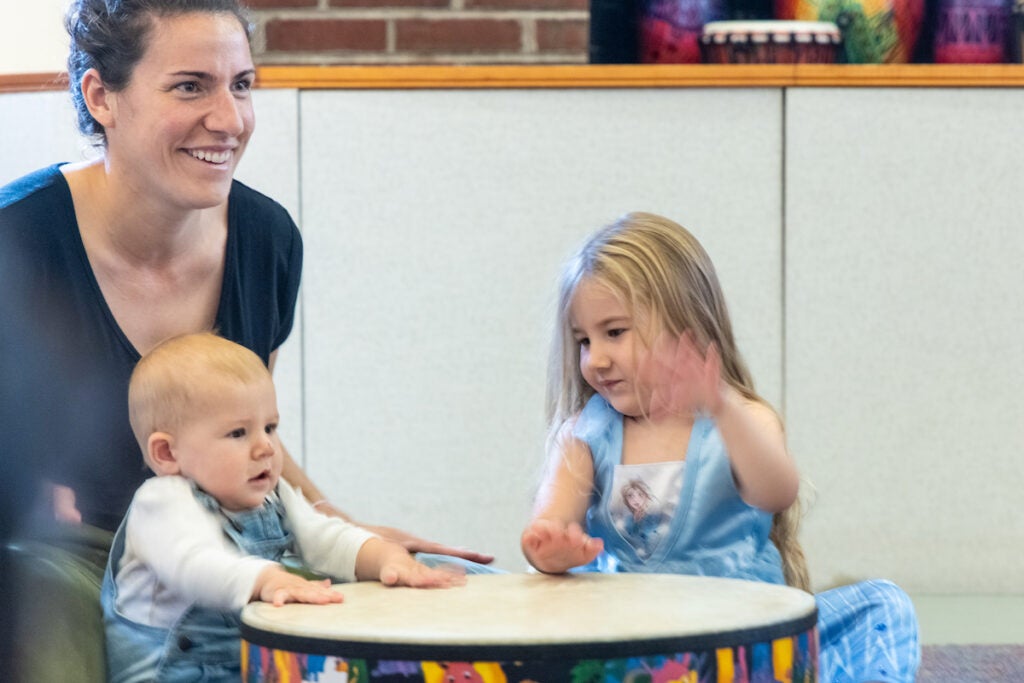
Building team spirit
Rebecca Parlakian, senior director of programs for Zero To Three, a nonprofit organization focused on supporting healthy development of babies and toddlers, said one study conducted at San Diego State University found that a music intervention program increased preschool children’s social and emotional skills when they interacted with their peers. Parlakian cited a separate study that found that the children in a music and rhythm group demonstrated an increased willingness to help one another and to cooperate on a problem-solving task.
“The cooperative experience of music-making together in some ways set children up to transfer that perspective and that capacity to other situations,” she said.
Wasden said she has observed that children in her class become better listeners and demonstrate a willingness to cooperate and work together on projects, including helping to put items away after class.
“It’s really a process of development that doesn’t just happen in one semester, it happens over years, and it’s just so exciting to watch and be part of,” she said.
Julie Sansone, the global marketing and communications manager for Music Together Princeton Lab School, said a great deal of research went into creating Music Together.
“What that means is we base the entire curriculum and everything that happens in class on research in early childhood development, in music development from a variety of researchers,” she said. “Music is a part of everyday life, part of being a human, and it’s expressed in many different ways throughout our lives.”
Sarah Orfe, director of the Music Together Princeton Lab School, said it’s vital for parents to participate with their children in these creative programs. She said it’s wonderful when mom or dad sings to their children.
“And it doesn’t matter how well the parent sings to them, if they are terrible singers, the child is still learning how to have a joy for music,” she said.
Jason Krane, from East Windsor, said he and his son Wyatt, who will be 2 in December, are thrilled to be in the mixed-family class at Music Together.
“He gets so much out of it, he goes home and sings the songs, we hear him humming, and the other day he was beating his pillow to the drums, so he’s very much engaged and loves it.”
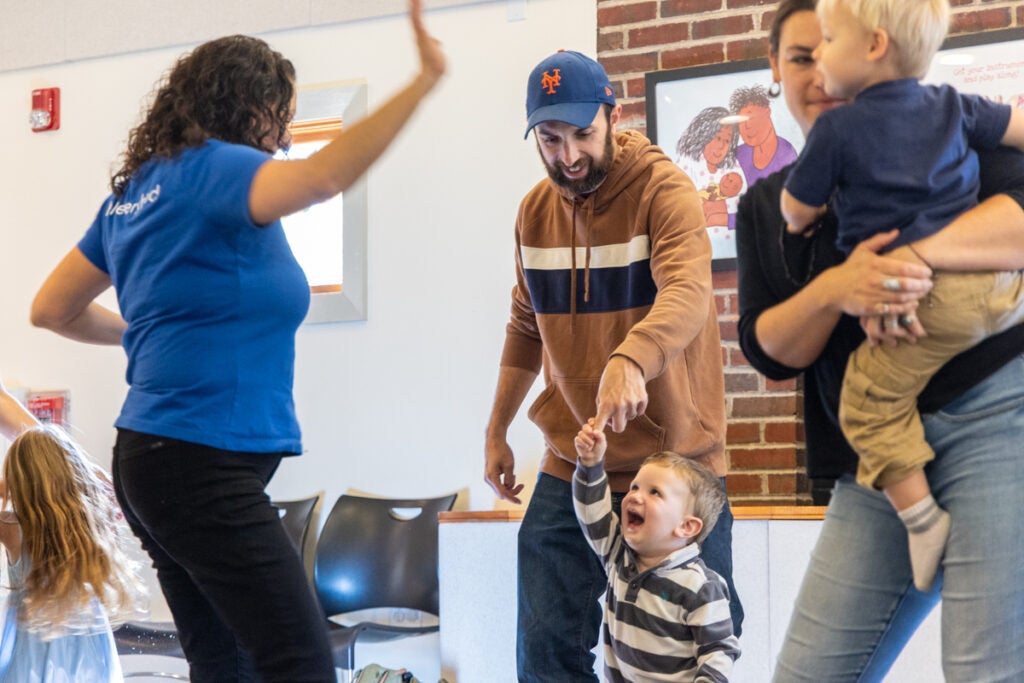
He said that when Wyatt goes to daycare, he has a great time. “They tell me they want to have him in the class because he’s a singer and a dancer,” he said.
Nicole Domanski said the program has helped her raise her son Hudson, who is 2.
“Transitions can be hard to get our pajamas on, to go into the bathtub, so using song has taught us to make our normal life things a little bit easier,” she said.
Orfe said every semester parents get a set of music to take home.
“We hope that they are listening to that at home, they’re playing those songs and they’re singing those songs,” she said. “Because we know the heart and the brain respond differently to the sung voice than to pre-recorded music.”
Editor’s Note: This story is part of a series that explores the impact of creativity on student learning and success. WHYY and this series are supported by the Marrazzo Family Foundation, a foundation focused on fostering creativity in Philadelphia youth, which is led by Ellie and Jeffrey Marrazzo. WHYY News produces independent, fact-based news content for audiences in Greater Philadelphia, Delaware and South Jersey.
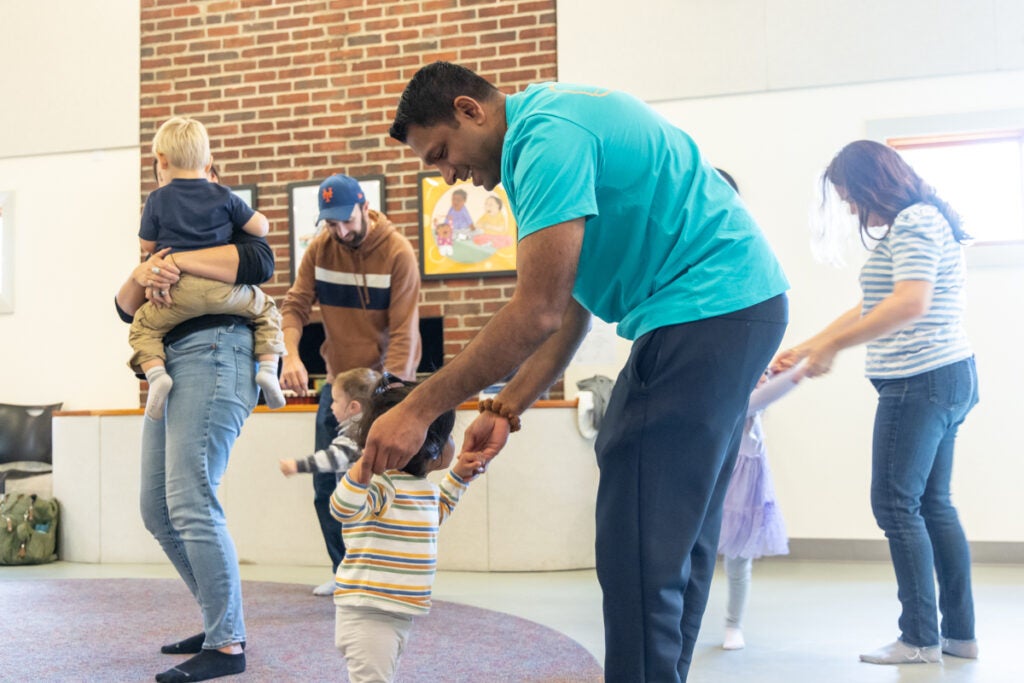

Get daily updates from WHYY News!
WHYY is your source for fact-based, in-depth journalism and information. As a nonprofit organization, we rely on financial support from readers like you. Please give today.



